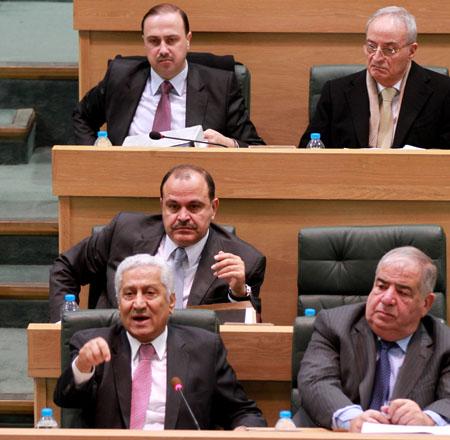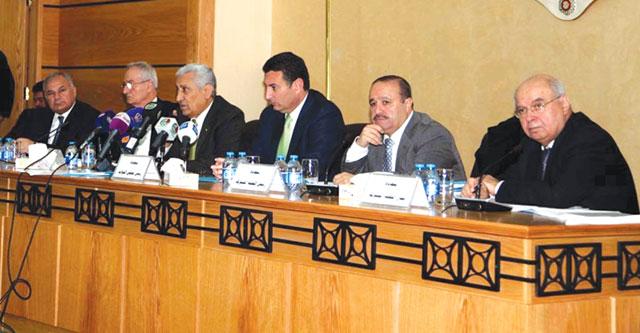You are here
Joint parliamentary panel to sit with gov’t over electricity tariffs
By Raed Omari - Jan 06,2015 - Last updated at Jan 06,2015

AMMAN — A joint parliamentary panel will examine the new electricity pricing mechanism with the government in hopes of reaching other solutions to the National Electric Power Company’s accumulated debts.
Upon a recommendation by Irbid MPs Jamil Nimri and Mustapha Amawi, the Lower House agreed on Tuesday to refer the issue of new electricity tariffs to a joint ad hoc panel representing the finance and energy committees for further study.
As tasked by an overwhelming majority, the two panels are required to discuss the issue of the new electricity tariffs with the government and come up with recommendations within 10 days.
The House also approved another suggestion to form an investigation committee into the country’s energy file in general.
Responding to MPs, who called on the government to freeze the electricity pricing mechanism, Prime Minister Abdullah Ensour said the government cannot respond to the demand before discussing the electricity file with the joint panel.
Underlying the inseparability of the new electricity tariffs from economic reform, the premier pledged positive cooperation with the two parliamentary panels to reach a consensus over the issue.
“The consequences we are having now are all the result of the reluctance of previous governments to boldly address the electricity issue,” Ensour said.
In remarks to The Jordan Times, Nimri described the new electricity pricing mechanism, which went into effect at the beginning of this month, as “solely an executive decision” over which the House has no jurisdiction.
“All we did is recommend the government freeze an already-taken decision.”
“Even if we want to take a decision, we would need more insight into the government’s rationale behind raising electricity tariffs. In fact, we need it to be explained in a scientific manner… We hope that the two panels can help the House reach a satisfactory formula with the government.”
Nimri also said that his colleagues’ “preaching and showing off” when the issue was discussed under the Dome had more to do with sentiments and populism than reasoning and logic.
“We need a scientific study away from politics. The House and government are in the same boat.”
During Sunday’s session, deputies called on the government to go back on its decision to increase electricity prices, primarily citing the considerable decline in international oil prices.
Some MPs criticised the government’s decision to increase electricity prices, arguing that it has lost its validating reasons with the decline in international oil prices.
Some lawmakers went further, criticising the government’s economic policies in general and accusing it of taking decisions without consulting the Lower House and of “giving inaccurate and misleading figures” to pass its “arbitrary” decisions.
A group of 24 MPs signed a memorandum requesting a no-confidence motion against Ensour’s government, citing their constitutional right to do so.
In 2013, the government increased prices of electricity for households and industries with monthly consumption of more than 600 and 10,000 kilowatt hours (kWh) respectively.
Electricity tariffs for households whose monthly consumption is 601kWh increased from JD0.141 to JD0.152 per kWh and will rise gradually until they reach JD0.188 by 2017.
Under the new pricing mechanism, a 25 per cent discount for security bodies, civil societies and municipalities was cancelled as well as a 75 per cent discount for workers at electricity companies.
Related Articles
A recently formed joint Lower House committee will hold its first meeting next Monday with Prime Minister Abdullah Ensour to discuss the new electricity pricing mechanism.
Disagreement over calculation of the exact debts of National Electric Power Company (NEPCO) dominated the joint Lower House panel's discussion with the government on Monday over the new electricity tariffs.
The Lower House on Sunday rejected a recommendation by a joint parliamentary committee to raise electricity tariffs by 7.5 per cent instead of 15 per cent under a deal it recently reached with the government.


















